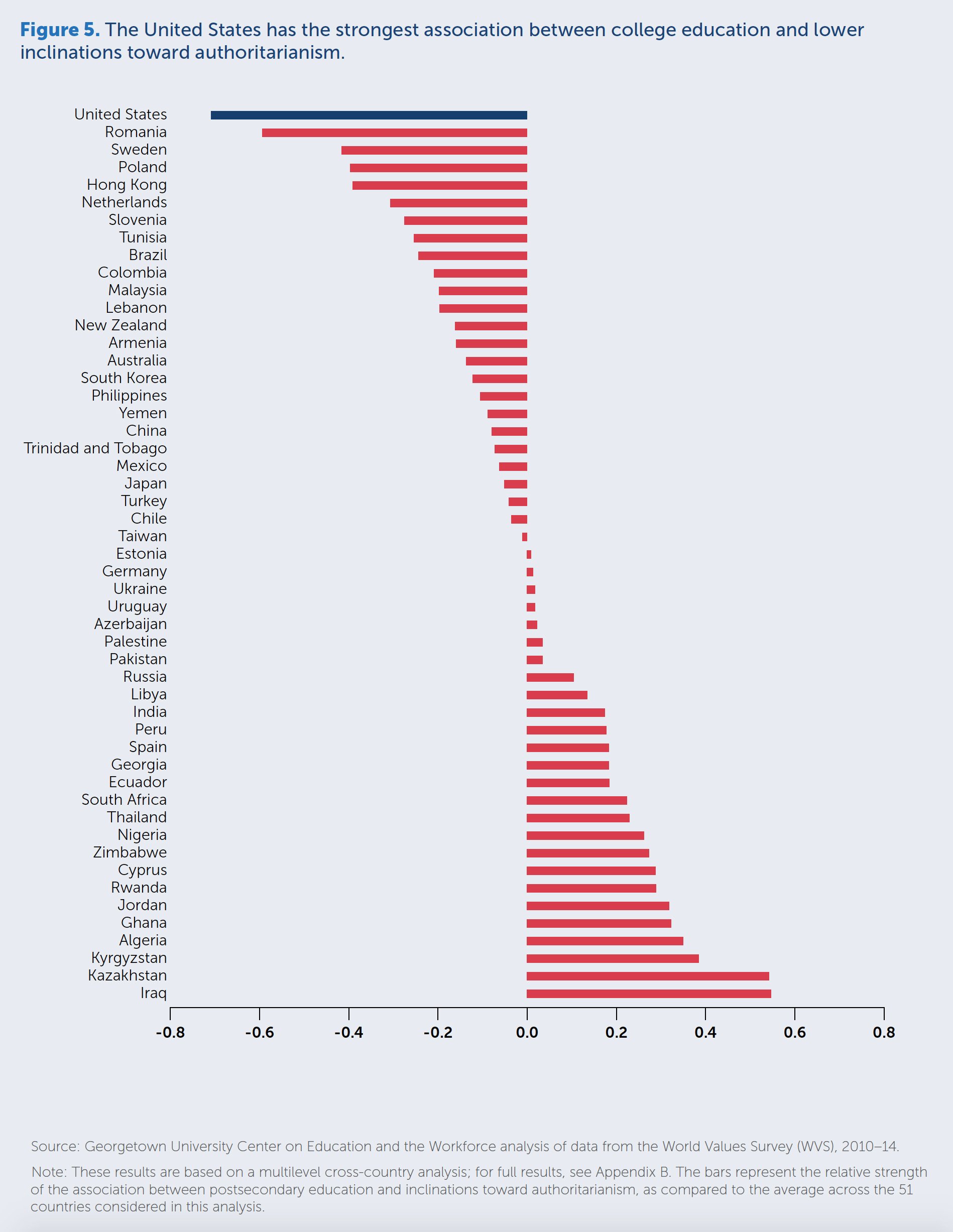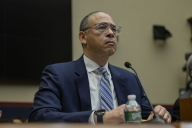You have /5 articles left.
Sign up for a free account or log in.
Higher education in the U.S. seems to be especially effective at mitigating tendencies toward authoritarianism, a new report suggests.
The report from Georgetown University’s Center for Education and the Workforce finds that bachelor’s degree holders are significantly less inclined, and associate degree holders are somewhat less inclined, to express authoritarian preferences and attitudes compared to high school graduates.
Among college graduates, holders of liberal art degrees are less inclined to express authoritarian attitudes and preferences compared to individuals who hold degrees in business or science, technology, engineering and mathematics fields.
The report, which draws from several national and international surveys, notes that people with higher education tend to be more economically secure than those without it, and that individuals with more economic security are less inclined to hold authoritarian preferences and attitudes.
People with higher education are also more likely to be politically active. Political interest and democratic activism are associated with lower inclinations toward authoritarian preferences and attitudes.
The report also notes that higher education tends to expose people to secular values and cultures. Surveys show that people who are more religious are more inclined to hold authoritarian preferences and attitudes.
 The relationship between higher education and lower attitudes toward authoritarianism appears to be especially strong in the U.S. compared to other countries (see chart from report at left). The authors of the report hypothesize that a “possible contributing factor may be that, in contrast to European education and training systems that emphasize vocational preparation, American higher education places a strong emphasis on a combination of specific and general education. Such general education includes exposure to the liberal arts.”
The relationship between higher education and lower attitudes toward authoritarianism appears to be especially strong in the U.S. compared to other countries (see chart from report at left). The authors of the report hypothesize that a “possible contributing factor may be that, in contrast to European education and training systems that emphasize vocational preparation, American higher education places a strong emphasis on a combination of specific and general education. Such general education includes exposure to the liberal arts.”
“When it comes to the way our education is structured, our higher education system does the most compared to other countries to reduce authoritarian attitudes,” said Nicole Smith, co-author of the report and the chief economist at the Georgetown Center for Education and the Workforce. “Is it something about the mix of liberal arts because everyone is exposed to history and social studies and ethics? Maybe it’s something in the way we create this mix in the kitchen that is different from everyone else.”
The report includes a forward from Georgetown president John J. DeGioia, who describes the report as “a clarion call for all in the academy to accept responsibility for performing a role that only we can play in our society.”








